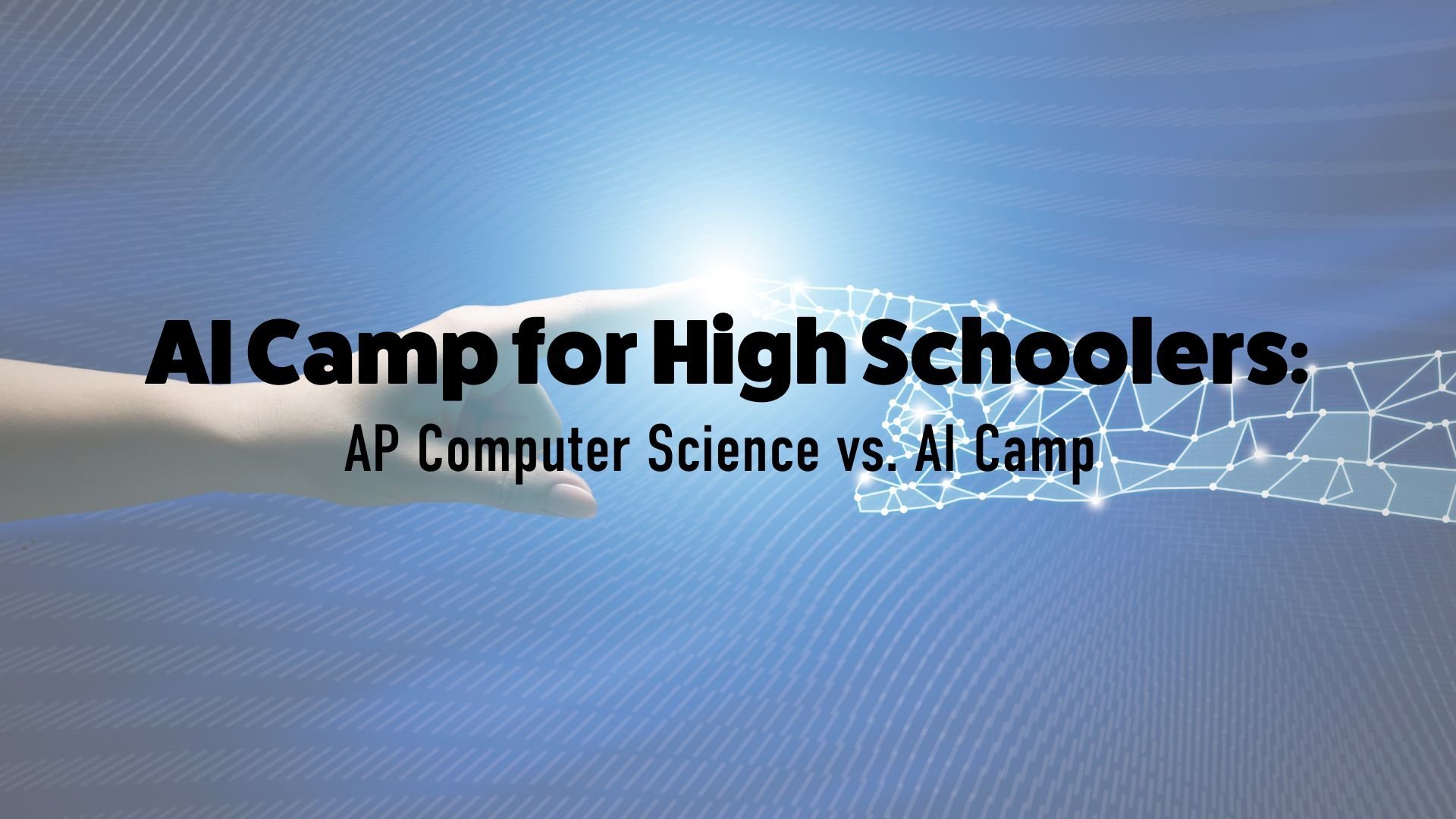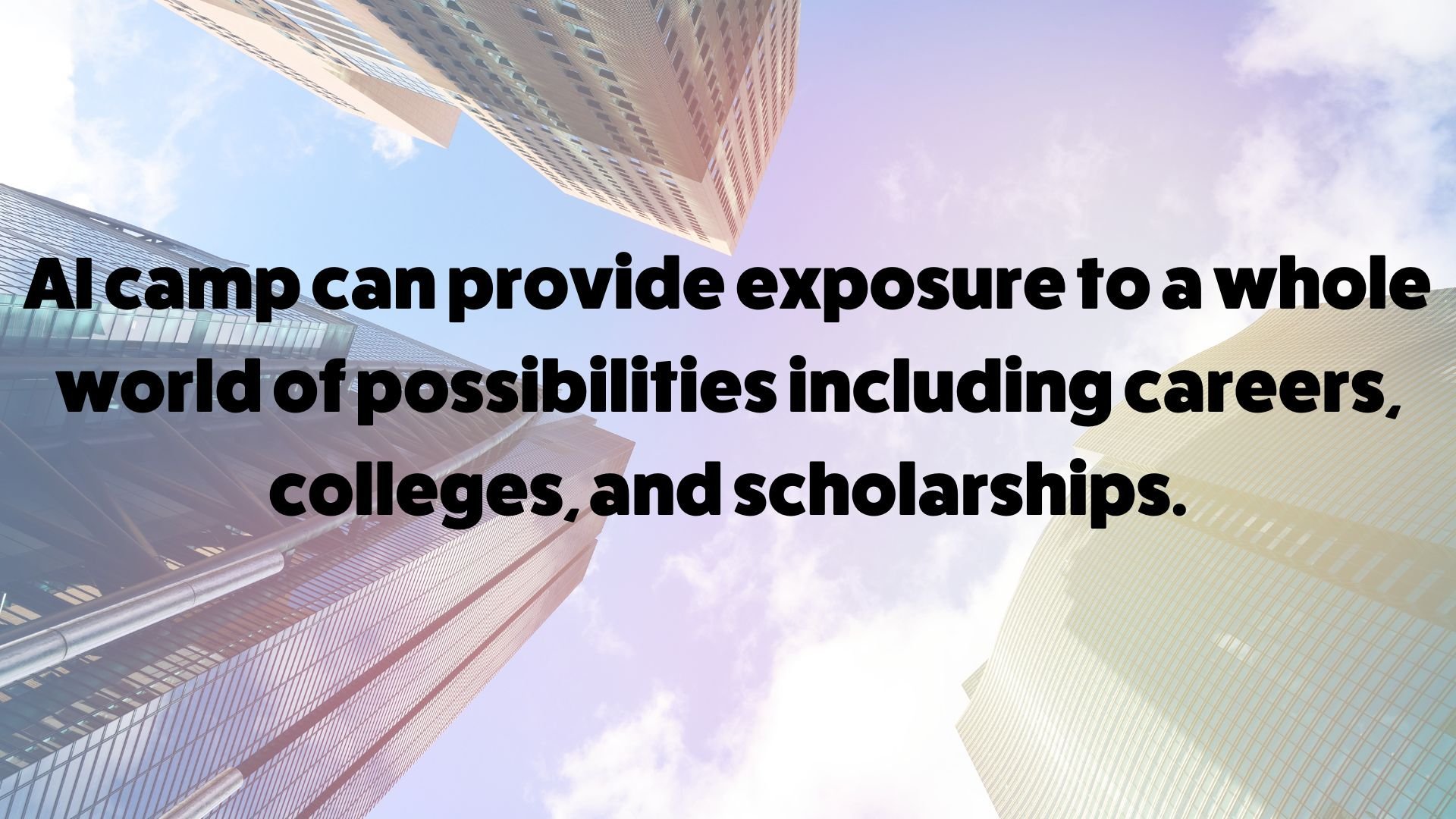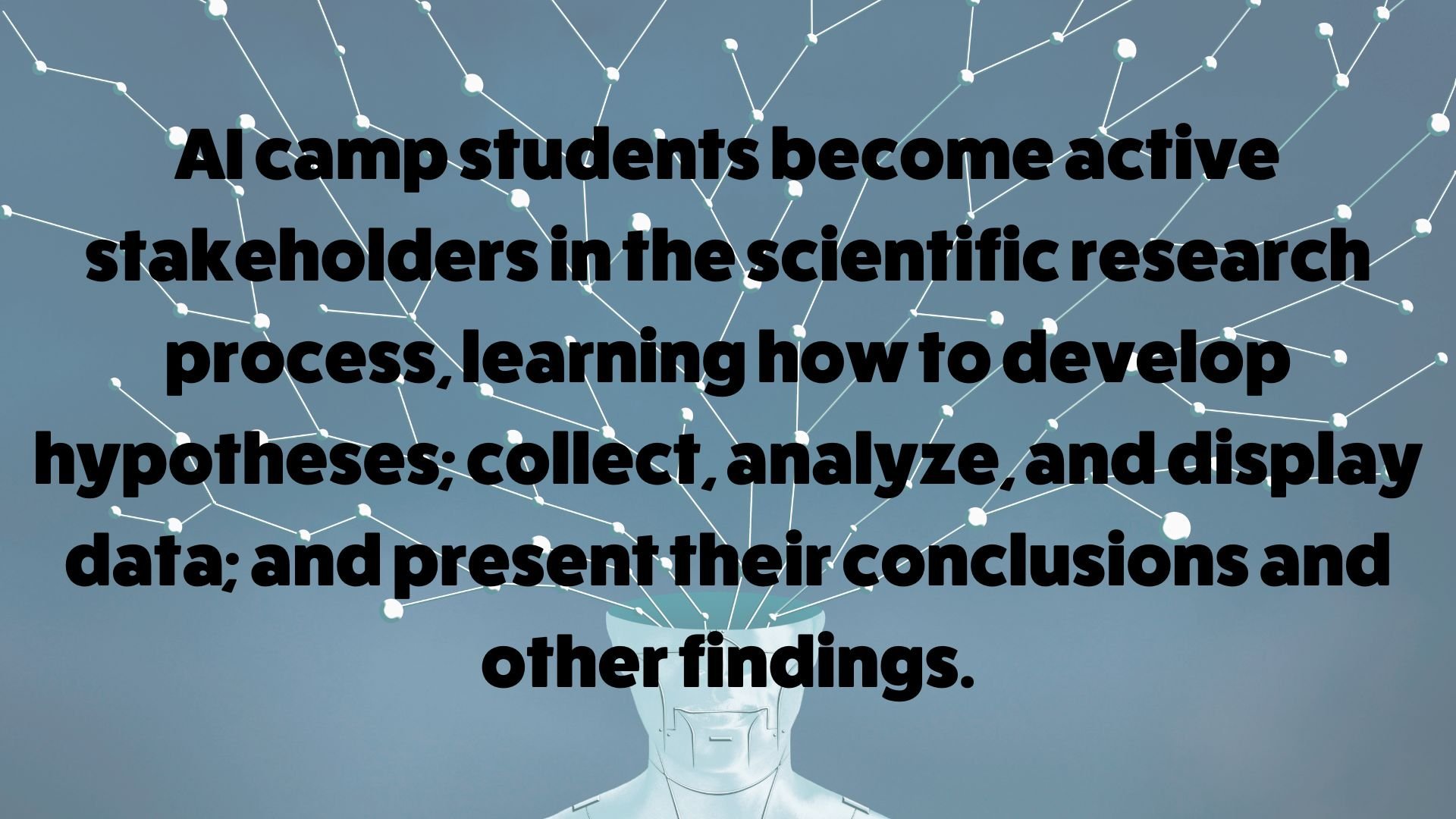AI Camp for High School Students: AP Computer Science vs. AI Camp
In today’s tech-enabled society, one of the most valuable skills that a young student can possess is the ability to code and apply computer science techniques to their work and inquiry. With the help of high-powered computing and processing tools, scientific research has begun to unlock even greater data-driven potential and high school students can play a role in these cutting-edge discoveries from an early age by familiarizing themselves with important tools of the trade such as machine learning and artificial intelligence (AI).
But how can students acquire these high-level skills as high schoolers? The best method for high school students to learn how to apply computer programming in their studies is to participate in a project-based programming or AI camp. This blog post will cover the benefits of attending an AI camp as a high schooler, why project-based learning is the preferred method for developing applied computer science knowledge, and a few resources to get motivated students started in their AI-learning journeys.
To begin, let’s consider some of the advantages for high school students to get involved in an AI camp and learn about the applications of artificial intelligence.
Benefits of Participating in a High School AI Camp
As a high-achieving high school student busy with several AP classes, standardized tests, and college admissions prep, where does an AI camp fit into the mix? For some students whose schools offer courses like AP Computer Science, they may even feel that an AI camp would be redundant or unnecessary. On the contrary.
There are a few key differences between the material taught in a class like AP Computer Science and an AI camp such as the AI Scholars Program. Notable advantages of a program like InspiritAI over the traditional high school computer science course include:
an emphasis on project-based learning, encouraging students to apply programming skills to topics that interest them
use of an interdisciplinary approach to allow students to explore the intersections between artificial intelligence and diverse fields such as medicine, sustainability, and journalism
smaller instructor to student ratio, with some programs as low as 5:1, enabling students greater access to their teachers
valuable preparatory resources for college admissions and career development, such as college essay workshops and panels with professional engineers and researchers
mentorship from top university researchers, hailing from Stanford, Harvard, and MIT, among other premier institutions
Additionally, there are some high schoolers for whom AI camp offers an opportunity unavailable to them in their regular school curriculum. For these students, an AI camp can provide exposure to a whole world of possibilities including careers, colleges, and scholarships. Careers in artificial intelligence can include roles such as:
Data scientist
Software engineer
Computer science researcher
Scientific modeler
App developer
By interacting with peers with wide-ranging interests, participants in AI camp also come to understand that artificial intelligence is not necessarily a concept restricted to the field of computer science but rather one with broad applications and relevance to their preferred realm of academic study. Students at InspiritAI, for example, are empowered to take their learnings in Python, AI ethics, natural language processing, and machine learning, and explore the application of these topics to their favorite subjects.
Often, students are inspired to further pursue AI-enabled research and inquiry by dedicated mentors who are excited to share the capabilities of artificial intelligence and nurture the next generation of interdisciplinary STEM scholars. The time that high school students spend with experienced researchers, usually current graduate students, can be formative in their own academic journeys, as these mentors can provide great perspective on goal setting, career exploration, and college/internship applications.
Why Project-Based Learning?
Perhaps the most significant difference between an AI camp like InspiritAI and AP Computer Science is the former’s focus on project-based learning. This teaching method allows students to quickly apply the skills they learn in their lessons to projects that they select themselves and in which they are thus invested.
Additionally, AI camp students become active stakeholders in the scientific research process, learning how to develop hypotheses; collect, analyze, and display data; and present their conclusions and other findings. High schoolers who are practiced in analysis and inquiry tend to perform well in their future pursuits, as these skills are ones that translate well across a wide variety of disciplines.
In project-based learning, high school students become accustomed to working collaboratively and setting team objectives, delegating tasks and playing to each other’s strengths. Because all team members are invested in the given project, they can work together to build on each other’s ideas and create a report of which they can all be proud and use to display their capabilities in computer science and AI.
An interdisciplinary group project in AI can demonstrate multiple favorable traits to colleges on a student’s college application. These include:
Leadership abilities
Technical skills (computer programming, data analysis, scientific writing)
Interdisciplinary focus
Research experience/familiarity with scientific method
Inquisitive spirit/intellectual vitality
Project-based learning is an effective method of developing students’ understanding of each discipline that they engage in their project, so that their interdisciplinary approach to research is not merely a surface-level combination of artificial intelligence with another subject. Instead, students must understand the fundamentals of AI and coding language in order to elevate their inquiry into their chosen topic; likewise, a student’s expertise in their subject matter will promote the optimal application of AI techniques and methodology to their project. The collaborative nature of project-based learning in AI camp then serves to increase the research team’s collective knowledge base and improve the overall quality of their investigation.
Finally, a project-based learning format produces an end product that can be submitted to research competitions such as science fairs or hackathons, further accenting a student’s resumé and helping them to stand out from other applicants during college admissions. To this end, InspiritAI offers a 1:1 AI + X Individual Research Mentorship to help students further refine their research and presentation skills while preparing their projects for submission to academic journals or scientific programming competitions.
AI Resources for Motivated High School Students
Students and parents that have made it this far, allow us to share some of our top resources related to computer science and artificial intelligence to help motivated students continue to develop their knowledge and progress toward their academic and career goals.
First, be sure to check out some of our previous blog posts on summer programs in research and engineering to get a sense of what possibilities exist for high schoolers. Then, explore our internship directories for high school students, which compile opportunities in subject areas like computer science, biology, medicine, and engineering.
Last but not least, consider applying to the AI Scholars Program at InspiritAI! Whether you are a programming maestro or have no prior experience in coding, there is an InspiritAI program for you. As a bonus, students who complete multiple programs with InspiritAI receive their own digital portfolio to display their completed work, in addition to certificates of achievement from each individual program. For more information, do not hesitate to contact InspiritAI with questions.




